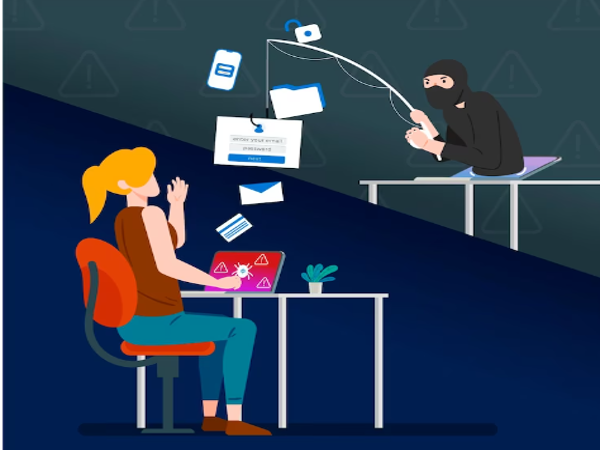In today's digital age, online scams have become increasingly prevalent, including the activities of loan sharks operating through digital platforms. Nigerians need to be aware of the risks associated with these scams and take necessary precautions to protect their financial security. In this blog, we will explore the dangers posed by loan sharks and online scams in Nigeria and provide valuable tips to help you stay safe in the digital landscape.
Understanding the Tactics of Loan Sharks
Loan sharks are individuals or organizations that offer loans at exorbitant interest rates and employ aggressive and illegal tactics to collect payments. In the online realm, they have adapted their strategies to exploit unsuspecting borrowers. They often use fake websites, social media profiles, and online ads to lure victims. Understanding their tactics is crucial to identifying potential scams and avoiding falling into their traps.
Research and Verify Lenders
Before engaging with any online lender, conduct thorough research to verify their legitimacy. Check if the lender is registered with relevant regulatory bodies in Nigeria, such as the Central Bank of Nigeria (CBN) or the Consumer Protection Council (CPC). Look for reviews and testimonials from other borrowers to gauge their credibility. Be cautious of lenders with poor online presence or limited contact information, as these could be warning signs of fraudulent activities.
Protect Your Personal Information
One of the primary goals of online scammers is to obtain your personal and financial information for fraudulent purposes. Safeguard your sensitive data by never sharing it with unverified lenders or suspicious websites. Ensure that the websites you visit have secure connections (https://) and use trusted payment gateways. Be vigilant of phishing attempts through email or text messages, and never disclose your personal information to unsolicited communications.
Read and Understand Loan Terms
Before accepting any loan offer, carefully read and understand the terms and conditions. Pay attention to interest rates, repayment schedules, and any additional fees or penalties. Legitimate lenders will provide clear and transparent information, while scammers may use convoluted language or hidden clauses. If anything seems unclear or too good to be true, seek clarification or consider alternative lending options.
Verify Licensing and Accreditation
Legitimate lenders in Nigeria are required to have valid licenses and accreditation from regulatory bodies. Verify the credentials of online lenders by checking their license numbers or accreditation details on the websites of relevant regulatory authorities. This step will help you distinguish between trustworthy lenders and potential scammers who operate without proper authorization.
Report Suspected Scams
If you come across a suspected loan shark or online scam, report it immediately to the appropriate authorities. Contact the Economic and Financial Crimes Commission (EFCC) or the Consumer Protection Council (CPC) to provide them with detailed information about the scam. By reporting these activities, you contribute to protecting others from falling victim to similar scams and assist in the efforts to crack down on fraudulent lenders.
Conclusion
Loan sharks and online scams pose a significant threat to individuals seeking financial assistance in Nigeria's digital age. By staying informed and implementing necessary precautions, you can protect yourself from falling victim to these fraudulent schemes. Remember to research and verify lenders, protect your personal information, read and understand loan terms, verify licensing and accreditation, and report suspected scams to the relevant authorities. By being vigilant and proactive, you can navigate the digital landscape safely and secure your financial well-being.

.jpg)







